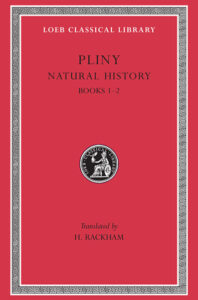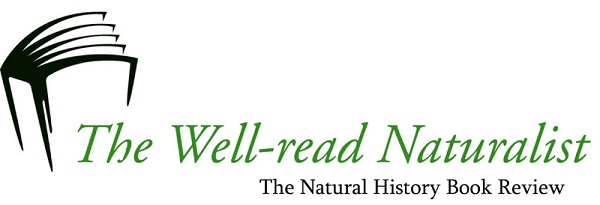 Taking from my Norfolk jacket pocket the first volume of Harvard’s Loeb edition of Pliny’s Natural History, I sat down to await my turn in the queue to speak to a clerk at the Xfinity shop that I had driven thirty miles to reach in order to ask a question about our most recent bill (let he who hath ever tried to contact them on the telephone reckon the amount of time spent waiting on hold in order to be connected with someone in southeast Asia who won’t be able to answer the question that inspired the call, for it is a very large number), I found great solace and wisdom in Book II, including the following:
Taking from my Norfolk jacket pocket the first volume of Harvard’s Loeb edition of Pliny’s Natural History, I sat down to await my turn in the queue to speak to a clerk at the Xfinity shop that I had driven thirty miles to reach in order to ask a question about our most recent bill (let he who hath ever tried to contact them on the telephone reckon the amount of time spent waiting on hold in order to be connected with someone in southeast Asia who won’t be able to answer the question that inspired the call, for it is a very large number), I found great solace and wisdom in Book II, including the following:
But it agrees with life’s experience to believe that in these matters the gods exercise an interest in human affairs; and that punishment for wickedness, though sometimes tardy, as God is occupied in so vast a mass of things, yet is never frustrated; and that man was not born God’s next of kin for the purpose of approximating to the beasts in vileness. But the chief consolations for nature’s imperfection in the case of man are that not even for God are all things possible – for he cannot, even if he wishes, commit suicide, the supreme boon that he has bestowed on man among all the penalties of life, nor bestow eternity on mortals or recall the deceased, nor cause a man that has lived not to have lived or one that has held high office not to have held it – and that he has no power over what is past save to forget it, and (to link our fellowship with God by means of frivolous arguments as well) that he cannot cause twice ten not to be twenty, or do many things on similar lines: which facts unquestionably demonstrate the power of nature, and prove that it is this that we mean by the word ‘God.’ It will not have been irrelevant to have diverged to these topics, which have already been widely disseminated because of the unceasing enquiry into the nature of God.
– Pliny the Elder, Natural History, Book II, sections 26 & 27
(trans.H. Rackham)
Those who have not previously read the Natural History are highly encouraged to do so, for it contains a veritable treasure-house of information (some of which is factually correct, others being myths and legends that were taken as such, and are no less interesting just because they aren’t true) about, as the translator of this edition so eloquently put is, “astronomy, meteorology, mineralogy, zoology, and botany, i.e., a systematic account of all the material objects that are not the product of mans manufacture; but among these topics, which are implied by the title, Pliny inserts considerable essays on human inventions and institutions (Book VII), as well as minor digressions on similar subjects interspersed in various other parts of the work,” such as this brief passage just cited.
I first began the study of the history or religion and of theology in 1990 and have been including the subjects in my ongoing pursuit of knowledge and wisdom ever since, and in this one brief passage, Pliny, in this one aside that briefly interrupts the topic about which he was writing, has sliced straight through myriad Gordian knots tied by countless theologians down through the ages. Such is the inestimable value of this now too-little read (even those who may read about it often don’t read it in itself) and contemplated book. I very much urge you to do so.
